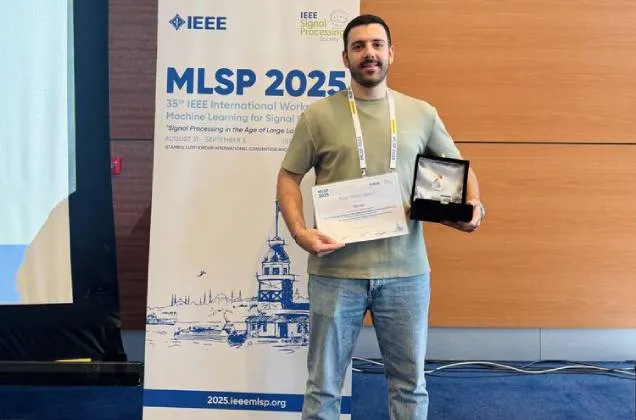28/02/2021
The Corporate Governance Forum presented the Business Against Domestic Violence Project in the “Where Are We on The Fight Against Gender-Based Violence?” conference organized on November 24 by the United Nations Population Fund (UNFPA) Turkey and the special webinar organized by Sakarya Elektrik Dağıtım A.Ş. on November 25, the International Day for the Elimination of Violence Against Women.

Sevda Alkan, the Director of Women Empowerment Projects at the Corporate Governance Forum of Sabancı University, shared the outcomes of the study conducted as part of the Business Against Domestic Violence Project supported by the United Nations Population Fund and the Sabancı Foundation.
Alkan noted that 17 percent of the participants of the impact study answered the question “Where should women apply if they are subjected to violence” with “They should resolve it themselves” in 2014 and this number dropped to 2 percent in 2019.
According to the information shared by Alkan, a higher number of participants chose reasons related to men’s psychology and the patriarchal structure of society in the 2019 survey than in the 2014 survey. The most commonly recommended bodies to apply in 2019 appear to be social workers/women's organizations and violence hotlines. In addition, there seems to be increase in the rate of those who state that women who are subjected to violence should receive support from their “friends at work” or “HR department of the company where they work”.
Alkan said, “These results show that the participants of the 2019 survey have become more aware about their understanding of gender and associate the patriarchy with domestic violence”, stating that gender equality training increased the awareness of employees on issues such as discriminatory words and sharing domestic roles.
Noting that the results of the study indicate that Turkish business need to assume an active part in the sturggle against domestic violence, Alkan stated that they developed the “Workplace Policy Development and Implementation Guide on Domestic Violence Against Women” to be implemented in companies and aim to create mechanisms for the development of a work culture that does not tolerate violence against women in order to ensure gender equality in workplaces.
Alkan continued her statement as follows:
"By implementing this guide, more than 70 companies have developed policies and established support mechanisms to address the violence that their employees are subjected to at home.
These support mechanisms essentially include:
- Additional paid leave
- Psychological and legal support services
- Personalized performance evaluation that will also take into account exceptional personal situations
- Training to raise awareness regarding gender-based violence in the company
- Ongoing internal and external communication on the value of gender equality
- Accepting gender equality and, in particular, close partner violence as a workplace issue and the involvement of top management in communication processes related to these issues.
As a result of all these studies and work we have done so far, companies have been able to go beyond just developing policies and implemented them. The companies involved in the project treated combating domestic violence as a workplace procedure, not as corporate social responsibility.
The business world can play an important role by developing workplace policies and support mechanisms for women who are subjected to violence in order to ensure the full inclusion of women in business life, to build stronger economies for the private sector, and to achieve international goals regarding human rights and sustainability.”




